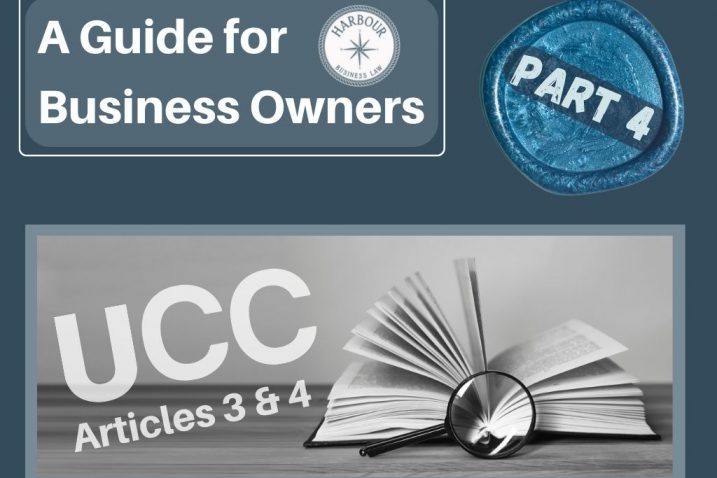
By: Katelyn J. Dougherty, Esq.
As a business owner, you likely engage in various financial transactions, including issuing and receiving checks, and even promissory notes from time to time. These instruments are key in facilitating smooth business operations and managing cash flow. Understanding the provisions of Article 3 (Promissory Notes) and Article 4 (Checks) of the Uniform Commercial Code (UCC) is essential to ensure compliance and protect your rights. Let’s explore some aspects of these articles and their significance for your business:
Article 3: Promissory Notes
Article 3 of the UCC provides the legal framework for negotiable instruments, particularly promissory notes. Here’s what you need to know:
Article 4: Checks
Article 4 of the UCC governs the rights and responsibilities of parties involved in check transactions. Here’s what you should be aware of:
Compliance with Articles 3 and 4 of the UCC is essential for business owners to ensure the validity and enforceability of promissory notes and checks. Failure to follow the requirements and procedures outlined in these articles may result in financial losses, disputes, or legal complications.
To navigate the intricacies of Articles 3 and 4 effectively, it is recommended to consult with an experienced attorney specializing in commercial law. They can provide the following:
By harnessing the power of Articles 3 and 4, you can confidently issue and receive promissory notes and checks, mitigate risks, and facilitate seamless financial transactions. Understanding these provisions will empower you to make informed decisions, protect your business interests, and foster trust and credibility with your stakeholders.
Don’t have a business attorney? Get in touch with our team by emailing Info@harbourbusinesslaw.com.
This Blog was written by Founding Attorney, Katelyn Dougherty.
DISCLAIMER: This blog is for educational purposes only and does not offer nor substitute legal advice. This blog does not establish an attorney-client relationship and is not for advertising or solicitation purposes. Any of the content contained herein shall not be used to make any decision without first consulting an attorney. The hiring of an attorney is an important decision not to be based on advertisements or blogs. Harbour Business Law expressly disclaims any and all liability in regard to any actions, or lack thereof, based on any contents of this blog.